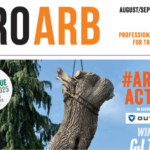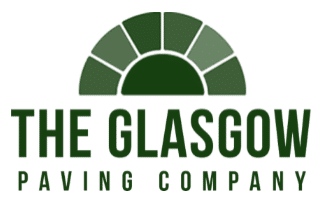Most landscaping companies rely on word-of-mouth recommendations and listings on platforms like Checkatrade to generate leads. While these methods can work, they leave you at the mercy of external factors you can’t control. What if there was a way to ensure potential customers found your landscaping business exactly when they were searching for your services?
Search engine optimisation (SEO) transforms how landscaping businesses attract customers. When homeowners in your area search Google for “landscaper near me” or “garden design [your town]”, SEO determines whether your business appears at the top of the results or gets buried on page three where nobody looks. Attracting local customers is crucial, and optimising local search features like Google Maps listings, local SEO practices, and reviews from nearby clients can significantly improve your visibility in local search results.
The landscaping industry faces unique challenges when it comes to online visibility. Your services are inherently local, seasonal, and often require significant investment from customers. This means your website needs to work harder to build trust and demonstrate expertise. The good news? Most landscaping companies haven’t mastered SEO yet, which presents a massive opportunity for those who get it right.
This comprehensive guide will walk you through everything you need to know about SEO for landscapers. You’ll discover how to optimise your website to rank higher on Google, attract more qualified leads, and build a sustainable flow of enquiries that doesn’t depend on paid advertising or third-party platforms. Effective SEO helps you secure more landscaping projects by increasing your online visibility and attracting qualified traffic—potential customers who are actively searching for your services.
Introduction to SEO for Landscaping Businesses
In today’s digital-first world, search engine optimisation (SEO) has become a cornerstone of success for landscaping businesses looking to grow. With more potential clients turning to search engines to find local landscaping companies, having a strong online presence is no longer optional—it’s essential. SEO helps landscaping businesses increase their online visibility, ensuring that when homeowners search for landscaping services, your business stands out in the search engine results.
By investing in search engine optimisation, landscaping companies can attract more qualified leads—people who are actively looking for the services you offer. This not only drives more traffic to your website but also increases the likelihood of converting those visitors into paying clients. Whether you’re a small local business or a larger landscaping company, SEO is a powerful tool to connect with your target audience, showcase your expertise, and grow your revenue. In the following sections, we’ll break down how SEO can help your landscaping business achieve its online marketing goals and stay ahead of the competition.
What Is SEO (Search Engine Optimisation)?
Search engine optimisation is the process of improving your website so it appears higher in Google’s search results when potential customers look for landscaping services. Think of Google as a librarian helping someone find the perfect book. When a homeowner searches for “patio installation company,” Google’s job is to recommend the most relevant and trustworthy landscaping businesses in their area.
Google uses over 200 factors to decide which websites deserve the top spots. These factors fall into three main categories:
On-page SEO involves optimising your web pages for both visitors and search engines. This includes using relevant keywords in your page titles, writing detailed service descriptions, and ensuring your site loads quickly on mobile devices.
Off-page SEO focuses on building your website’s authority through backlinks from other reputable sites. When a local garden centre or building supplier links to your website, it signals to Google that your business is trustworthy and established in the community.
Local SEO is particularly crucial for landscaping companies. This involves optimising your Google Business Profile, collecting customer reviews, and ensuring your business information is consistent across online directories.
The key difference between SEO and paid advertising is sustainability. While Google Ads stop bringing traffic the moment you stop paying, SEO builds momentum over time. A well-optimised page about your garden design services can continue attracting customers for years with minimal ongoing investment.
Why SEO Is Crucial for Landscaping Businesses
The way people find landscaping services has fundamentally changed. Research shows that 97% of consumers search online for local services, and 46% of all Google searches have local intent. When a homeowner decides they need their garden redesigned or they want a new patio or decking laid, their first instinct is to reach for their phone and search Google.
Consider how your potential customers actually search. They might start with broad terms like “landscaping companies near me” when they’re just beginning to explore their options. As they get more specific about their needs, they’ll search for terms like “patio installation [your town]” or “landscaper near me”. At each stage of their journey, you want your business to appear in the search results. Showing up in local search results is crucial, as it makes it easier for people in your area to find and contact you.
Local intent drives most landscaping searches. Someone searching for a landscaper isn’t looking for options across the entire country – they want someone who can visit their property, understand local soil conditions, and work within local planning regulations. This geographical focus actually works in your favour, as you’re only competing against other landscaping companies in your immediate area rather than the entire internet. The goal is to reach the first page of search results for your area, as this dramatically increases your visibility and the likelihood of attracting new clients.
In our experience with landscapers across the UK, those who invest in SEO typically see a 40-60% increase in website enquiries within six months. One garden design company we worked with in Lincoln went from receiving two enquiries per month through their website to generating over twenty qualified leads monthly by ranking for terms like “garden design Lincoln” and “landscape architects Lincolnshire.”
Compared to other marketing channels, SEO offers exceptional long-term value. While platforms like Checkatrade charge per lead and Google Ads require ongoing investment, a well-optimised website can generate leads consistently without ongoing costs per click or lead.
How Google Ranks Landscaping Websites
Understanding how Google evaluates landscaping websites helps you focus your SEO efforts on what actually matters. Google’s algorithm considers several key factors when deciding which landscaping companies deserve the top rankings. Appearing at the top of the results is crucial, as visibility on the search engine results page signals credibility and attracts more potential customers.
Content relevance plays a fundamental role. Google analyses whether your website content matches what people are searching for. If someone searches for “block paving contractors,” Google looks for pages that thoroughly cover block paving services, pricing information, and relevant expertise. Surface-level content that barely mentions your services won’t compete with comprehensive pages that demonstrate deep knowledge.
Website authority determines how much Google trusts your site. This authority builds through several factors, including the age of your domain, the quality of websites linking to you, and consistent positive signals from users. Increasing your domain authority through high-quality content and earning backlinks from reputable sources can significantly improve your rankings. A landscaping company that’s been operating with the same website for five years and has earned links from local councils, garden centres, and satisfied customers will typically outrank a brand-new competitor with an identical website.
User experience signals have become increasingly important. Google pays attention to how people interact with your website. If visitors quickly leave your site after arriving from search results, it suggests your content doesn’t match their expectations. Conversely, if people spend time browsing your portfolio, reading your service descriptions, and filling out contact forms, Google interprets this as a sign of quality.
Mobile-friendliness is non-negotiable for landscaping websites. Over 60% of local searches happen on mobile devices, often while homeowners are standing in their gardens visualising potential improvements. If your website doesn’t display properly on smartphones, you’re not just frustrating potential customers – you’re also being penalised by Google’s mobile-first indexing approach.
Your Google Business Profile significantly influences local rankings. Google treats this profile as a primary source of information about your landscaping business. A complete profile helps your business stand out on search engine results pages. Complete profiles with accurate business hours, service areas, high-quality photos of your work, and regular customer reviews consistently outperform sparse or outdated profiles.
Understanding SEO Fundamentals
Before diving into advanced strategies, it’s important for landscaping businesses to understand the core principles of search engine optimisation. At its heart, SEO is about making your website and online presence as attractive as possible to search engines, so your business appears prominently when potential customers search for landscaping services.
Key elements of a successful SEO strategy include keyword research, which helps you discover the terms your target audience is using; on-page optimisation, which ensures your website content is relevant and well-structured; technical SEO, which addresses behind-the-scenes factors like site speed and mobile usability; link building, which increases your website’s authority through reputable backlinks; and local SEO, which focuses on making your business visible in local searches. By mastering these fundamentals, landscaping businesses can lay a strong foundation for long-term online success and improve their chances of ranking higher in search engine results.
SEO Strategy for Landscapers: Step-by-Step Guide
Step 1: Keyword Research
Effective SEO for landscapers starts with understanding exactly what your potential customers search for. Keyword research reveals the specific phrases homeowners use when looking for landscaping services, allowing you to create content that matches their search intent. Identifying targeted keywords that potential customers are actively searching for is crucial to ensure your content reaches the right audience.
Start with Google Keyword Planner, a free tool that shows search volumes and competition levels for different keywords. Focus on terms that combine your services with location modifiers. For example, “landscaping [your town]” or “garden design [your county]” typically generate more qualified leads than generic terms like “landscaping services.” Pay special attention to key searches that drive the most relevant traffic to your site.
Long-tail keywords often provide the best opportunities for landscaping companies. Phrases like “garden makeover ideas for small spaces” or “cost of block paving driveway” attract people who are further along in their decision-making process and more likely to become customers. A lawn care company can also benefit from effective keyword research by targeting specific services and local search terms to attract new clients.
Consider seasonal variations in your keyword research. Terms like “winter garden maintenance” peak during autumn months, while “patio installation” sees highest search volumes in spring. Planning your content calendar around these seasonal trends helps capture demand when it’s strongest.
Use tools like Ubersuggest or AnswerThePublic to discover question-based keywords. Many homeowners search for information before they’re ready to hire a contractor. Creating content that answers questions like “How long does patio installation take?” positions your business as helpful and knowledgeable, building trust before potential customers are ready to make contact.
Step 2: Competitor Analysis for Landscaping Companies
A thorough competitor analysis is a vital part of any effective SEO strategy for landscaping companies. By examining how other landscaping businesses in your area perform online, you can uncover valuable insights that inform your own approach. Start by identifying your main competitors and analysing their websites, social media presence, and online reviews. Look for the relevant keywords they are targeting, the types of content they produce, and the quality of their link building efforts.
This process helps you spot gaps in the market—areas where your competitors may be underperforming or missing opportunities. For example, you might find that few competitors have detailed blog posts about specific landscaping projects or that their online reviews are lacking. Use this information to refine your own SEO strategy, focusing on creating high-quality content, targeting untapped keywords, and building strong backlinks. By learning from your competitors’ strengths and weaknesses, you can position your landscaping business to outrank them in search engine results and attract more qualified leads.
Step 2: On-Page SEO
On-page optimisation ensures each page of your website clearly communicates its purpose to both visitors and search engines. Start with your page titles, which should include your target keyword and location. For example, “Professional Garden Design Services in [Your Town] | [Your Company]” is more effective than generic titles like “Services | [Your Company].” After optimising page titles and meta descriptions, use SEO tools to analyse and improve on-page elements such as keyword usage, internal linking, and technical SEO factors.
Write compelling meta descriptions that encourage clicks from search results. These short summaries should explain what makes your landscaping services unique and include a clear call to action. “Transform your outdoor space with award-winning garden design. Free consultations available across [Your Area]. Call today for your quote.”
Structure your service pages with clear headings that incorporate relevant keywords naturally. Use H2 headings for main services like “Patio Installation” or “Garden Buildings,” then break down specific aspects with H3 subheadings like “Block Paving Options” or “Outdoor Kitchens.”
Include detailed service descriptions that demonstrate your expertise. Rather than simply listing services, explain your process, highlight your qualifications, and address common customer concerns. This comprehensive approach helps you rank for a wider variety of search terms while building confidence with potential customers.
Optimise your images with descriptive alt text that includes relevant keywords. Instead of generic filenames like “IMG_1234.jpg,” use descriptive names like “limestone-patio-installation-manchester.jpg.” This helps your project photos and blog post images appear in Google Images searches, providing another avenue for discovery.
Step 4: Technical Optimisation for Landscaper SEO
Technical SEO is the backbone of a successful online presence for landscapers. It ensures that your website is easily accessible and understandable by search engines, which is crucial for achieving high rankings and attracting organic traffic. Key aspects of technical SEO include optimising your website’s page speed, ensuring mobile responsiveness, creating and submitting XML sitemaps, and using accurate meta tags for each page.
Regular technical audits help identify and resolve issues that could hinder your website’s performance, such as broken links, duplicate content, or slow-loading pages. By keeping your site technically sound, you make it easier for search engines to crawl and index your content, which in turn improves your visibility in search results. A well-optimized website not only attracts more visitors but also provides a better user experience, increasing the chances that those visitors will become paying clients.
Step 3: Local SEO
Local SEO is particularly crucial for landscaping businesses because your customers come from a specific geographical area. Optimising for local search helps attract customers in your area who are actively seeking landscaping services. Your Google Business Profile serves as your primary tool for local visibility, so ensure every section is completely filled out with accurate, detailed information. Additionally, optimising your presence on Google Maps increases your visibility in local search results and helps potential customers easily find your services.
Choose your business categories carefully. Primary categories like “Landscape Gardener” or “Paving Contractor” are obvious choices, but don’t overlook additional categories that match your specific services. Adding categories like “Landscape Architect,” “Landscape Designer,” or “Fence Contractor” can help you appear in more specific searches.
Collect customer reviews systematically rather than hoping they arrive naturally. Most satisfied customers need a gentle prompt to leave reviews. Send follow-up emails after completing projects, include review requests in your invoices, or create simple cards with QR codes linking directly to your Google Business Profile.
Maintain consistent business information across all online directories. Your business name, address, and phone number should be identical on your website, Google Business Profile, Yell, TrustATrader, and any other platforms where you’re listed. Inconsistencies confuse Google and can hurt your local rankings.
Build local backlinks by connecting with other businesses in your area. Partner with local garden centres, building suppliers, or home improvement companies for mutual referrals and link exchanges. Sponsor local community events or sports teams, which often results in links from event websites and local news coverage. Effective local SEO efforts not only improve your rankings but also help generate more local leads for your landscaping business.
Step 4: Content Marketing
Regular content creation establishes your landscaping business as an authority in your field while targeting long-tail keywords that your main service pages might miss. Blog posts, project showcases, and helpful guides attract visitors who aren’t ready to hire a contractor immediately but might become customers in the future. Regularly publishing blog articles is essential for improving your search rankings and adapting to search engine algorithm changes. Integrating content marketing into your overall digital marketing strategies ensures your business stays competitive and visible online.
Create seasonal content that addresses your customers’ changing needs throughout the year. Spring articles about garden preparation, summer guides for lawn care, autumn advice for pruning, winter tips for plant protection, and how-to guides for creating a low maintenance garden keep your website relevant year-round and capture search traffic during different seasons. These topics appeal to busy homeowners seeking easy-care outdoor spaces.
Document your projects with detailed case studies that showcase your expertise. Rather than simply posting before-and-after photos, explain the challenges you faced, the solutions you implemented, and the materials you chose. This comprehensive approach helps you rank for specific product and technique-related searches.
Answer common customer questions through your content. “How much does a new driveway cost?” or “How long does it take to design a garden?” are questions your potential customers frequently search for. Providing thorough, helpful answers builds trust and positions your business as knowledgeable and customer-focused.
Target location-specific content opportunities. Create pages or posts about landscaping considerations specific to your area, such as “Best Plants for [Your Region]’s Climate” or “Garden Design Ideas for [Local Area] Properties.” This hyper-local content often faces less competition while attracting highly qualified local traffic. Content marketing also helps attract potential customers searching for landscaping solutions, increasing your visibility and bringing in relevant inquiries.
Step 5: Link Building
Building high-quality backlinks remains one of the most effective ways to improve your landscaping website’s authority and search rankings. Focus on earning links from relevant, reputable sources rather than pursuing quantity over quality. Earning backlinks from reputable websites not only boosts your search engine rankings but also builds trust with both Google and your audience.
Get listed in relevant business directories beyond the obvious ones. While Yell and TrustATrader are important, also consider industry-specific directories, local business associations, and regional tourism websites if your work includes commercial or public projects.
Develop relationships with complementary businesses that might naturally link to your services. Garden centres, plant nurseries, building material suppliers, and home improvement contractors all work with similar customers and might refer to your services in their content or resource pages. Strong link building from these sources can help your business stand out in the market and strengthen your business stand against competitors.
Create shareable content that naturally attracts links. Comprehensive guides, local landscaping inspiration galleries, or seasonal garden care checklists provide value to other websites and blogs in your industry. When local bloggers or home improvement websites reference your content, you earn valuable backlinks.
Leverage your existing customer relationships for link opportunities. If you’ve worked on projects for local businesses, schools, or community organisations, ask if they’d be willing to mention your work on their websites with a link back to your portfolio. Additionally, partnering with a landscaper SEO agency can help your business stand out by implementing effective link building strategies tailored to the landscaping industry.
Custom SEO Solutions for Landscaping Businesses
No two landscaping businesses are exactly alike, which is why a custom SEO strategy is essential for achieving the best results. A tailored approach takes into account your unique goals, target audience, and the specific challenges you face in your local market. By partnering with a reputable SEO agency, you can develop a custom SEO strategy that combines local SEO, technical SEO, keyword research, on-page optimisation, and link building—all designed to boost your online visibility and attract more qualified leads.
A custom SEO solution starts with a deep understanding of your landscaping business and its objectives. The agency will analyse your current online presence, research your target audience, and assess your competition to identify the most effective tactics for your situation. This personalised approach ensures that every aspect of your SEO campaign is aligned with your business goals, helping you stand out in search engine results and connect with the clients who matter most. Investing in a custom SEO strategy gives your landscaping business the best chance to grow and thrive in an increasingly competitive digital landscape.
Common SEO Mistakes Landscaping Companies Make
Many landscaping businesses unknowingly sabotage their SEO efforts through common mistakes that are easily avoided once you know what to look for. Each landscaping business’s needs are unique and require tailored solutions to achieve the best results. Understanding these pitfalls helps you focus your efforts on strategies that actually work.
Thin content is perhaps the most widespread issue. Many landscaping websites contain just a few sentences about each service, providing little value to visitors or search engines. A page that simply states “We install patios. Contact us for a quote” will never compete with comprehensive content that explains different paving materials, typical installation timelines, and maintenance requirements.
Keyword neglect represents another missed opportunity. Some landscaping companies create beautiful websites that showcase their work but fail to use the terms their customers actually search for. Your portfolio might be stunning, but if your page titles and content don’t include keywords like “garden design,” “landscaping services,” or your location, potential customers won’t find you through search engines. Implementing effective SEO strategies ensures your website targets the right keywords and attracts more local and targeted traffic.
Duplicate content problems often arise when landscaping companies use similar descriptions across multiple service pages or copy text from supplier websites. Google penalises this approach because it doesn’t provide unique value to searchers. Each page on your website should offer distinct, original content that serves a specific purpose.
Neglecting mobile users can severely impact your SEO performance. With most local searches happening on mobile devices, a website that doesn’t display properly on smartphones frustrates visitors and signals poor user experience to Google. Ensure your site loads quickly, displays correctly on all screen sizes, and makes it easy for mobile users to contact you.
Ignoring performance tracking means missing opportunities to improve your results. Without monitoring tools like Google Search Console and Google Analytics, you can’t identify which keywords are driving traffic, which pages need improvement, or whether your SEO efforts are generating actual enquiries. Professional landscaping SEO services can help you avoid these common mistakes and improve your landscaping business’s online visibility.
How Long SEO Takes to Show Results
Setting realistic expectations about SEO timelines prevents frustration and helps you maintain consistent efforts during the initial months when results might not be immediately visible. SEO for landscapers typically follows a predictable pattern, though individual results vary based on competition levels and the current state of your website. Ongoing, well-planned SEO campaigns are essential to sustain and build upon these efforts for long-term success.
Most landscaping companies begin seeing improvements in search rankings within three to six months of implementing a comprehensive SEO strategy. However, these early improvements often involve less competitive, long-tail keywords rather than the most valuable head terms like “landscaper [your town].”
The compound nature of SEO means results accelerate over time. Your first month might generate one additional enquiry from organic search, but by month six, the same ongoing efforts could be producing ten or fifteen monthly leads. Appearing in organic search results is crucial for long-term growth, as these natural listings drive consistent, high-quality traffic and help establish your business’s authority. This exponential growth occurs because SEO builds authority gradually, with each piece of content, each backlink, and each positive user signal contributing to your overall ranking potential.
Local SEO often shows faster results than general SEO because you’re competing against a smaller pool of businesses. Optimising your Google Business Profile and building local citations can produce noticeable improvements within weeks, particularly if your competitors haven’t invested much effort in their online presence.
Seasonal factors influence SEO timelines for landscaping businesses. If you launch your SEO campaign during winter months when search volume for landscaping services is naturally lower, you might not see the full impact until spring when homeowners begin planning their garden projects.
The key to SEO success is consistency. Many landscaping companies start strong but lose momentum after a few months when they don’t see immediate dramatic results. Those who maintain steady efforts through the initial months typically see substantial improvements that continue growing year after year. Integrating SEO into your overall online marketing campaign ensures your business maximises visibility, attracts qualified leads, and achieves sustainable growth.
Tracking Your SEO Performance
Measuring your SEO success requires monitoring the right metrics and understanding what each tells you about your website’s performance. Monitoring your visibility in Google search results is a key metric, as it shows how well your site is ranking for important keywords. Without proper tracking, you can’t identify what’s working, what needs improvement, or whether your SEO efforts are generating actual business results.
Google Search Console provides the most direct insight into how your website performs in search results. This free tool shows which keywords trigger your pages in search results, how often people click through to your website, and any technical issues that might be hindering your rankings. For landscaping companies, pay particular attention to local keywords and seasonal trends in your search performance. You can also track how your landscaping business appears in search results, helping you optimise your listings and improve your visibility for potential clients.
Google Analytics reveals what happens after people find your website. Track which pages visitors view, how long they stay, and most importantly, which traffic sources generate actual enquiries. Analyse website visitors’ behaviour, such as bounce rate and interaction with calls-to-action, to improve engagement and increase the likelihood of conversions. Set up goals to track contact form submissions, phone calls, and other conversion actions so you can measure the business impact of your SEO efforts.
Local ranking tools like BrightLocal help monitor your visibility for location-specific searches. Track your rankings for key terms like “landscaper [your town]” and “garden design [your area]” to see how your local SEO efforts impact your competitive position.
Monitor your Google Business Profile metrics through the built-in insights dashboard. Track how many people view your profile, request directions, visit your website, and call your business. Increases in these metrics often precede improvements in overall website traffic and enquiries.
Conversion tracking is crucial for understanding SEO’s business impact. Monitor not just website traffic increases, but the quality and quantity of enquiries generated through organic search. Track which keywords and pages produce the most valuable leads, then create more content targeting similar search terms.
DIY vs. Hiring an SEO Expert
Deciding whether to handle SEO yourself or hire an expert depends on your available time, technical skills, and the complexity of your competitive landscape. Both approaches have merits, and understanding the trade-offs helps you make the right decision for your landscaping business. In today’s digital marketing landscape, landscapers SEO has emerged as a specialised area focused on helping landscaping companies improve their online presence and attract more local customers.
DIY SEO works well for landscaping companies with limited budgets and owners who enjoy learning new skills. Basic local SEO tasks like optimising your Google Business Profile, writing service page content, and building local citations are achievable without extensive technical knowledge. The main requirements are time, patience, and willingness to learn through trial and error.
Most landscaping business owners we speak to find content creation the most manageable aspect of DIY SEO. You understand your services, know your customers’ common questions, and can create authentic, helpful content that demonstrates your expertise. This insider knowledge often produces better results than generic content created by agencies unfamiliar with your industry.
However, DIY SEO has limitations. Technical issues like website speed optimisation, schema markup implementation, and advanced link building strategies require specialised knowledge that takes months or years to develop. Time invested in learning these skills is time not spent growing your core landscaping business.
Hiring an SEO expert makes sense when you want faster results, lack time for DIY efforts, or face strong competition that requires advanced strategies. A good SEO agency brings experience from working with multiple landscaping companies, knowledge of what works in your industry, and established relationships that can accelerate link building efforts. Choosing specialised SEO services for landscapers ensures your campaigns are tailored to the unique needs of your business, leveraging industry expertise to improve your search rankings and generate more leads.
When evaluating SEO agencies, look for those with specific experience in local service businesses. Ask for case studies from landscaping companies, garden centres, or similar local service providers. Be wary of agencies that promise immediate results, guarantee specific rankings, or use aggressive tactics that could harm your website’s reputation. It’s also important to compare different SEO packages to find the best fit for your goals and budget, as comprehensive and transparent packages can make a significant difference in your long-term success.
Red flags include agencies that won’t explain their strategies, insist on long-term contracts without demonstrating early results, or focus primarily on vanity metrics like keyword rankings rather than business outcomes like enquiry volume and quality.
Transform Your Online Presence Today
SEO for landscapers isn’t just about technical optimisation or keyword placement – it’s about connecting with homeowners at the exact moment they’re looking for your expertise. When implemented correctly, SEO transforms your website from a digital brochure into a lead-generating asset that works around the clock to grow your business.
The landscaping companies that succeed online are those that start with a solid foundation and build consistently over time. Begin with local SEO fundamentals like optimising your Google Business Profile and ensuring your website clearly communicates your services and service areas. Add valuable content regularly, build relationships with other local businesses, and maintain consistent efforts even when results aren’t immediately visible.
Remember that SEO is a long-term investment that compounds over time. The work you put in today builds authority and visibility that continues generating leads months and years into the future. While paid advertising stops the moment you stop paying, a well-optimised website continues attracting customers indefinitely.
Your potential customers are already searching for landscaping services online. The question is whether they’ll find your business or your competitors when they search. By implementing the strategies outlined in this guide, you can ensure your landscaping company appears prominently when homeowners in your area need your expertise.
The digital landscape continues evolving, but the fundamental principle remains constant: businesses that provide valuable, relevant information to their potential customers will be rewarded with visibility and growth. Your expertise in transforming outdoor spaces deserves an online presence that reflects your professionalism and connects you with customers who value quality landscaping services.
Ready to take control of your online visibility and generate more qualified leads through search engines? Effective SEO can help you attract more clients and grow your business. Contact us for information on how we can improve your search ranking and transform your website into a powerful lead generation tool for your landscaping business.































